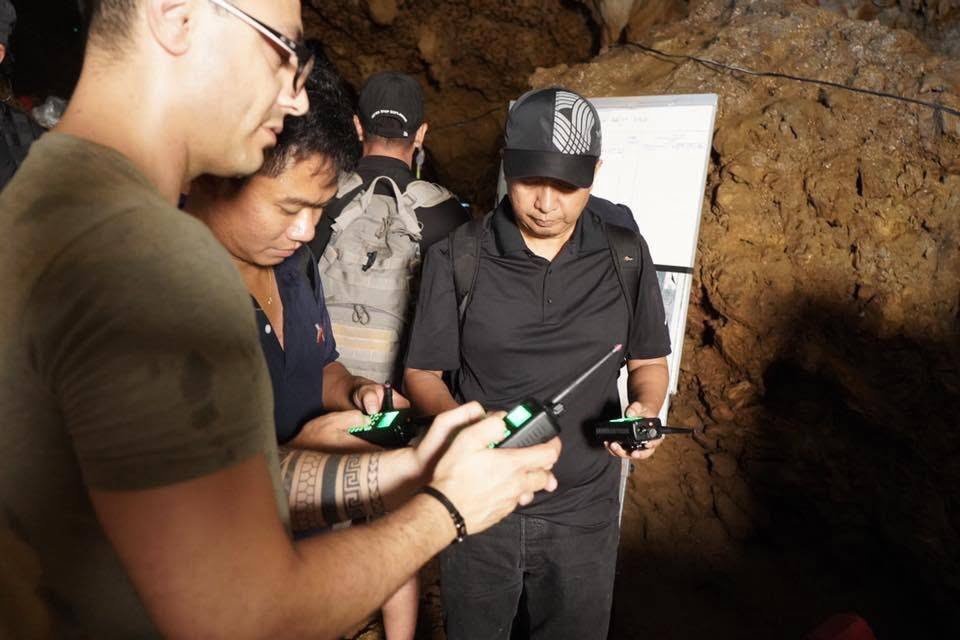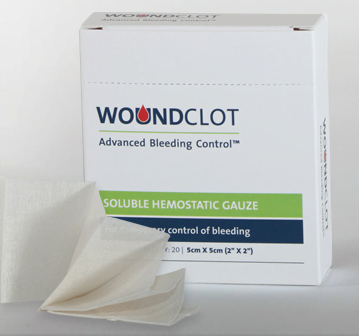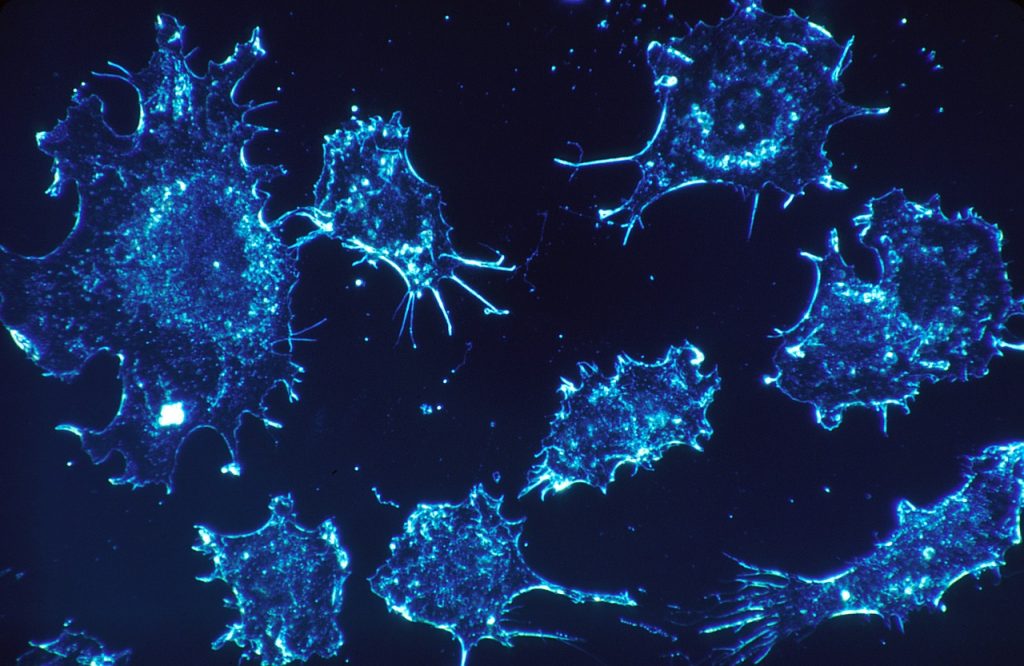Over the past year, Israel’s role as a chief tech innovator has been consistently making headlines on NoCamels, sparking the interest of our readers with stories that ranged from Israeli contributions to locating a boys’ soccer team missing in Thailand, to the development of a game-changing bandage that stops bleeding within seconds.
In this context, Israeli-born initiatives have been providing serious ‘meat’ to our stories, garnering international attention due to their far-reaching, cutting-edge potential.
With 2018 drawing to a close, NoCamels is taking the opportunity to look at the stories that our readers loved most.
This Israeli Tech Helped In Search For Missing Boys Soccer Team in Thailand
A soccer team of 12 boys, ages 11 to 16, and their 25-year old coach went missing in June earlier this year in the northern region of Chiang Rai, Thailand. Shortly after their disappearance, Thai emergency services began search efforts and were soon joined by international experts from China, Australia, the UK, Laos, Myanmar, the US, and Israel. The boys were eventually located, trapped in a partially flooded cave.
One Israeli company deployed state-of-the-art tech to contribute to the search-and-rescue efforts. Maxtech Networks, a supplier of emergency communication equipment, sent emergency radios and other innovative technologies to aid the rescuers, including their patented Max-Mesh mobile professional radio, a device that enables mission-critical communication of professional mobile radios through virtual infrastructure.
“We as a company decided to contribute devices to save those kids,” Hanuni says, “It’s very simple. When there are children at risk, you don’t think twice coming from a place like Israel. It’s in our nature.” Hanuni says he was heartened to hear the group was located. “I am very excited by this amazing success combining technology and life-saving. It has worked.”
The boys and their coach were successfully extracted from the cave in an operation that began on July 7 and lasted three days.

Maxtech Networks equipment used during rescue efforts to save boys soccer team in Thailand. July 2018. Courtesy
Israeli-Developed Bandage That Stops Bleeding Within Seconds Now Sold Globally
In February, NoCamels reported on a game-changing development that spared the lives of an Israeli police officer stabbed in an attack in Jerusalem a year prior. The life-saving creation consisted of a bandage that stopped the officer’s bleeding in less than a minute.

WoundClot bandages
Developed by Israeli medical company Core Scientific Creations (CSC), that bandage was WoundClot, a plant-based gauze that stimulates the body’s coagulation process and stops blood loss. Made out of cellulose (plant cells), the bandage can absorb over 2500 percent of its own weight and can be applied in situations in which compression can be harmful, such as with stab wounds, head and neck injuries, and internal bleeding. It is also bio-absorbable, remaining biologically active for 24-36 hours and breaking down naturally in the body within a week.
When applied to an injury, the single-use bandage turns into a gel-state membrane, forming a “3D matrix [that] traps platelets [clotting blood cells] and coagulants…while retaining their mobility and activity to form a biological clot,” the company says.
Israeli Doctors Develop Revolutionary Eye Drops That Could Replace Glasses
In March, Israeli ophthalmologists at Shaare Zedek Medical Center in Jerusalem and Bar-Ilan University’s Institute of Nanotechnology and Advanced Materials (BINA) revealed the successful development of eyedrops that repair the corneas, improving near-sighted and far-sighted vision. These “nanodrops” were successfully tested on pigs’ corneas, according to the researchers, and were expected to be tested on humans in clinical trials later in the year.
If proven successful in human trials, the groundbreaking discovery could remove the need for eyeglasses. The nanodrops are made up of a synthetic nanoparticle solution, which helps correct cornea-related vision problems.
Dr. David Smadja, a research associate at BINA and the Head of the Ophthalmology Research Unit at Shaare Zedek who led the team of ophthalmologists, said the nanodrops could “revolutionize ophthalmological and optometry treatments of patients with myopia (nearsightedness), hyperopia (farsightedness) and other refractory conditions.” Dr. Smadja also underlined that the drops could eventually replace multifocal lenses, and allow people to see objects from different distances.
Smadja worked with Professor Zeev Zalevsky of Bar Ilan’s Kofkin Faculty of Engineering and Professor Jean-Paul Lellouche of Department of Chemistry the BIU Institute for Nanotechnology and Advanced Materials, along with other experts from the Shaare Zedek Medical Center, to develop the eye drops.

Eye Drop. Pixabay
Israeli Startup Freezing Cancer In Its Tracks Now Tackling Kidney, Liver, Bone Tumors
In March, NoCamels drew attention to an Israeli biomedical company that is looking to revolutionize the treatment of cancer, a notoriously long and trying process that sometimes requires a combination of surgery and radiation or chemotherapy and can have devastating effects.
Since 2006, Caesarea-based IceCure Medical has advanced the concept of cryoablation, a process which uses extreme cold to freeze and destroy diseased tissue used by medical experts for years, to develop technology that would freeze cancer tumors. IceCure touts the procedures as non-invasive, safe, and a viable alternative to surgery. The system had specifically been developed to treat fibroadenomas, which are the most common type of benign breast tumors, typically seen in young women aged 15 to 30.
After administering local anesthesia, a doctor pumps liquid nitrogen at -274F (-170C) through a needle guided by ultrasound scanning to freeze the tumor without affecting surrounding tissue. The whole procedure takes about 15 minutes, can be done in a doctor’s office, and is virtually painless and minimally invasive. IceCure says it can use its system to treat tumors the size of golf balls.
Earlier this year, IceCure reported great success rates following clinical trials across the US. IceCure announced this summer that it will begin commercial treatments at Elisha Hospital, a private hospital in the northern Israeli city of Haifa.
IceCure was also featured in our “superhero startups of 2018” round-up.
Breakthrough Cancer Therapy Developed By Israeli MedTech Startup Heads For Clinical Trials
Alpha Tau Medical, an Israeli medical technology company that developed breakthrough radiation cancer therapy, announced in November that it would be starting a series of clinical trials with leading medical centers in Italy with the aim of receiving Europe’s CE approval by next year.
Alpha Tau Medical was founded in 2016 to focus on R&D and commercialization of its breakthrough cancer treatment, Alpha DaRT (Dіffusіng Alpha-emіtters Radіatіon Therapy). The technology, initially developed in 2003 by Professors Itzhak Kelson and Yona Keisari at Tel Aviv University, delivers high-precision alpha radiation that is released when radioactive substances decay inside the tumor, killing cancer cells while sparing the surrounding healthy tissue.
Early results from an ongoing pre-clinical trial at the Rabin Medical Center in Israel and the IRST (Istituto Scientifico Romagnolo per lo Studio e la Cura dei Tumori) in Italy on patients with squamous cell carcinoma (SCC) tumors, showed all tumor sizes reduced and more than 70 percent of the tumors completely disappearing within a few weeks after treatment.
The company says it is also collaborating with key cancer physicians worldwide to investigate the Alpha DaRT as a treatment for additional cancers, including pancreatic, breast, and prostate.
Renewable Energy In The Negev: Israel’s Multi-Billion-Dollar Solar Valley
An ambitious, multi-billion-dollar initiative was launched in 2014 that combines three massive solar power plants, the world’s tallest solar tower, and a wastewater treatment plant, all located in close proximity to a tiny Israeli community of roughly 500 people in the Negev desert. This project was launched following an Israeli government-set objective of having renewable energy contribute to 10 percent of electricity generation by 2020.
The first project consists in a massive, $1.1 billion, 121 MW thermo-solar power plant spread over 988 acres (about 4 square kilometers) of land called Negev Energy. The second, dubbed Megalim Solar Power, is a smaller plant across 741 acres (almost 3 square kilometers) built on concentrated solar power, which includes a massive, 820-foot (250-meter) solar tower, the largest such tower in the world and playfully dubbed the “tower of power.”
Nearby, the third project is a 35 MW solar plant based on photovoltaic, or PV, power – that is, the use of solar cells to generate electrical power. The fourth, the Ramat Hanegev Cogeneration Waste Water Treatment and Demineralization Plant, is part of a government plan to support the solar facilities which also includes bolstering the infrastructure surrounding the complexes.
Negev Energy CEO Didi Paz tells NoCamels that the plant uses innovative technology so advanced that it is a game-changer. “Like Silicon Valley in California, we are the Israel Solar Valley.”

An aerial shot of the Megalim Solar Power plant. Photo by Albatross photo agency
3 Recent Israeli-Led Breakthrough Discoveries In Autism Research
On April 2, in honor of the 11th annual World Autism Awareness Day 2018, NoCamels highlighted three Israeli developments in autism research.
We shed light on the groundbreaking innovation brought forward by Israeli engineer Raffi Rembrand, the founder of SensPD, an award-winning product providing a solution for early detection of autism in newborns and infants. His SensPD diagnostic test makes use of the same device used in newborn nurseries to test the hearing of infants by measuring otoacoustic emissions (OAE).
NoCamels also looked at the use of cannabis as a way to treat autism in Israel, as the use of Cannabidiol (CBD) is arguably one of the exhaustive ways to relieve symptoms of of ASD. The effects of Cannabidiol were tested in a recent study on children and young adults ranging in ages from 4-22, over the course of roughly two months. Parents were instructed on how to administer the oral drops, which featured Avidekel, a high-CBD strain developed by Tikun Olam, the largest supplier of medical cannabis in Israel. The overall rate of improvement in symptoms was 74.5 percent.
In addition, a new study led by Israeli Professor Stephen Levine of the University of Haifa in collaboration with researchers from the United States, Canada, and Sweden revealed that women who take folic acid supplements and multivitamins before and during pregnancy have a reduced risk of having a child with autism.
Five Israelis Among Forbes List Of Top 50 Women In Tech
Last week, NoCamels reported on the recent inclusion of five Israeli women – namely Adv. Limor Shmerling Magazanik, Dr. Michal Tsur, Dr. Tal Rabin, Galia Benartzi and Danit Peleg – in Forbes lists of “Top 50 Women In Tech”. The lists, published earlier this month, identify “three generations of forward-thinking technologists leading more than a dozen tech sectors across the globe,” and are divided into categories such as Moguls, Founders, Engineers, Innovators, and Warriors.
These Israeli women have been rocking their roles as innovators and pioneers in the fields of cybersecurity, software and media, cryptography, fashion design, and entrepreneurship.
Adv. Limor Shmerling Magazanik recently joined the Israel Tech Policy Institute (ITPI), launched by Washington D.C. think tank Future of Privacy Forum, as a managing director; Dr. Michal Tsur is the president and co-founder of Kaltura, an open-source video platform that enhances websites with customized video and other functionalities; Dr. Tal Rabin joined IBM T.J.Watson Research Center in Yorktown Heights, NY and now heads its Cryptography Research Group; Galia Benartzi is a serial entrepreneur and the co-founder of Israeli-Swiss cryptocurrency conversion company Bancor; Danit Peleg is credited with creating the world’s first entirely 3D printed fashion collection and is now the creative director and CEO of the Danit Peleg 3D Printed Fashion studio.

Dr. Michal Tsur, top left, Dr. Tal Rabin, bottom left, Danit Peleg, center, Galia Benartzi. top right, Limor Shmerling Magazanik, bottom right.
Israeli Unicorns: These 18 Companies Are Valued At Over $1B
In June, we highlighted the Israeli “unicorn” companies, a tech term most commonly referred to the privately-held startups valued at $1 billion and above. Israel, a small nation with over 6,000 active startups and companies and a world leader in tech, claimed 18 unicorns, according to an overview of the high-tech industry compiled by Israeli entrepreneur Yaron Samid, the founder of TechAviv.
First on the list was workspace empire WeWork, co-founded by Israeli entrepreneur Adam Neumann. WeWork is now valued at an impressive $42 billion, following the most recent $3 billion investment from Japanese tech giant SoftBank Group Corp.
Next on the list was Miami-based AR company MagicLeap with $5 billion, followed by security and systems company Tanium and design company Houzz. The other companies were Compass, Elastic, Infinidat, ironSource, Payoneer, Gett, eToro, orCam, Gusto, Outbrain, Taboola, Fiverr, Lemonade and VIA.

Unicorn. Courtesy
Israeli Researchers Say They Can Reprogram Cancer Cells Back To Their Pre-Cancer State
In June, we delved into a potential breakthrough discovery in cancer research. A group of researchers from Israel’s Ben-Gurion University of the Negev (BGU) have in fact developed a new molecule that they claim inhibits the growth of cancer cells and reprograms them to act non-cancerous. The groundbreaking treatment is based on preventing the expression of the protein VDAC1, which is highly expressed in different types of tumors and found to alter cancer hallmarks.
VDAC1 is a “gatekeeper” of the mitochondria, the powerhouse of the cell, and is the “key to opening and closing the door to mitochondrial metabolism,” says the head of the research team Professor Varda Shoshan-Barmatz of the Department of Life Sciences and the National Institute for Biotechnology in the Negev (NIBN).
Cancer cells have a lot more VDAC1 than normal cells, Shoshan-Barmatz explained, so the team looked for ways to prevent their formation. The researchers developed a molecule called siRNA, which, when applied to the cells, began inhibiting their growth. When applied to mice with tumors, Shoshan-Barmatz says, it caused the tumor to shrink to about 10 percent of an untreated tumor, indicating a rewiring of the cells.
Applying the molecule resulted in inhibiting tumor growth, eliminating cancer stem cells, and leading the cell in the residual “tumor” to differentiate into normal-like cells, Shoshan-Barmatz said.

Cancer cells in an electron microscope scan. Courtesy of Pixabay
Israeli Scientist Wins EU Innovation Award For Breath Test Device That Detects Diseases
Israeli Professor Hossam Haick of the Wolfson Faculty of Chemical Engineering at the Technion – Israel Institute of Technology was awarded the European Commission Innovation Prize in mid-November for his invention of the SNIFFPHONE, a device that uses nanotechnology sensors to analyze particles on the breath and is able to pinpoint to exact diseases, like certain kinds of cancer, pulmonary and even the early stages of neurodegenerative diseases.
Haick was awarded the prize in Lisbon, Portugal at the annual European Forum of Electronic Components and Systems (EFECS), which focused on humanity’s “digital future.” The Technion professor was chosen by a prize committee as the most innovative scientist realizing an idea in the field of electronic systems.
The SNIFFPHONE includes the NaNose, developed in 2014 by Haick and Professor Nir Peled of Tel Aviv University’s Sackler Faculty of Medicine. It is a microchip incorporated into a the breathalyzer-like device, capable of diagnosing various diseases. The device uses the presence of specific volatile organic compounds, which are unique fingerprints for various forms of diseases.
In a 2017 study led by Haick, the NaNose was able to differentiate between malignant and benign tumors, as well as their source, with almost 90 percent accuracy.
Haick is also featured in our list of “most influential Israelis” this year.